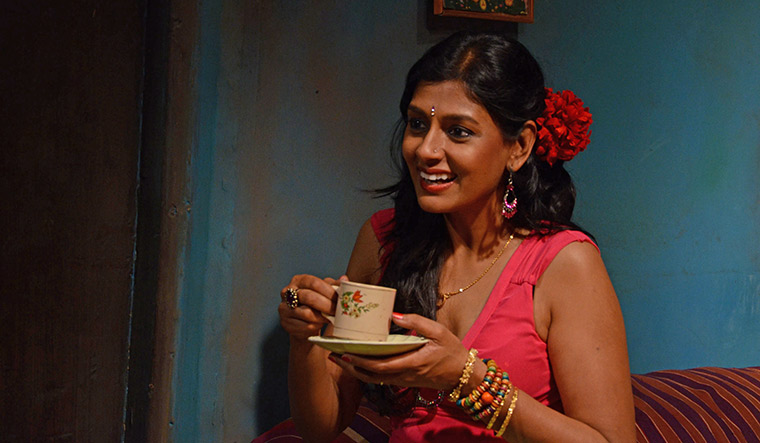Nandita Das: In Her Own Element
Nandita has appeared in over 30 films in India. Avoiding Bollywood, she appears in independent and regional dramas and, where possible, in films that tackle issues, such as the award-winning BAWANDAR (2000), which dealt with child-marriage and violence to women. As a human rights activist these are two causes particularly close to her heart.
Last year she appeared in the English language film BEFORE THE RAINS, directed by Santosh Sivan (see movieScope Vol 2 No 3 2008).
movieScope caught up with Nandita at The Times BFI 52nd London Film Festival where she was appearing in RAMCHAND PAKSTANI, directed by Mehreen Jabbar, and also showing her directorial debut FIRAAQ, a multi-stranded ensemble film that looks at the aftermath of the 2002 sectarian riots in Gujarat. FIRAAQ won the Everyday Life: Transcendence or Reconciliation Award at the 49th Thessaloniki International Film Festival.
Your parents are both creative people. Was that a big influence on you as you were growing up?
To some extent all children are influenced by their parents. My father’s a painter, my mother’s a writer, so I did grow up with a lot of arts. Our forms of entertainment were dance performances, music concerts, theatre, and exhibitions; however, it was never films. I don’t remember seeing more than one or two with my parents, and I didn’t grow up seeing mainstream Bollywood, which has such a huge influence on Indians. Sometimes people think that I am just being arrogant and looking down upon mainstream films, but I genuinely didn’t grow up with them, which is why I never really connected with that aspect. The biggest influence that my parents gave me was of allowing a certain questioning, of giving me a lot more freedom to think for myself and to voice what I wanted to say, and I am really grateful to them for that.
That’s not really that common in Indian culture, is it?
In our class of people in the big cities it’s not that bad, but I know they were a little more liberal and progressive than many of my contemporaries at that time. You know, they’d say, “You don’t have to come first. You don’t have to study really hard if you don’t want to. Do other things as well.” Luckily for them I was a good student, but there was never that pressure to be something. Just pursue your dreams and do what you like doing.
That’s one of the advantages of having artistic parents.
Yes. Just them coming from different backgrounds, where they themselves were rebels. My father was asked to be an engineer, so he literally ran away from home and did his college of art and everything. My mother came from a Gandhian background, so I think the seeds were sown then for my interests in arts and human rights.










